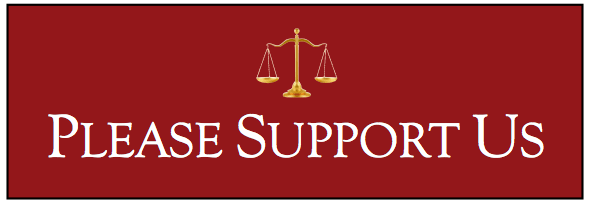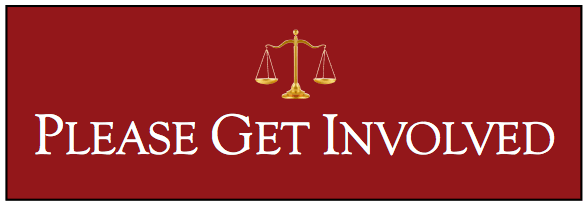The British Constitution - as it's supposed to work!
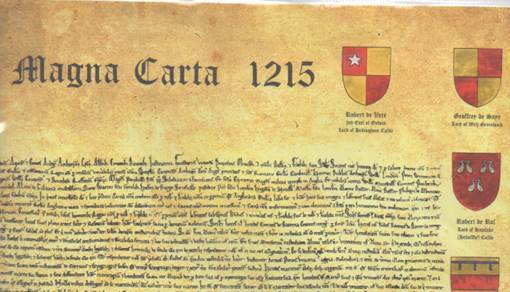
Introduction
We are increasingly having to reconcile, the more we read into this material, two ideals that appear to contradict each other. It has always been the intention of the New Chartist Movement (and the British Constitution Group) to help awaken people to deliberate and intentional obfuscations that have led us to the temporary loss of our democratic constitutional state structure and the emplacement of a fraudulent money system. And, thence to bring about a restoration of the Common Law system that was always meant to be operating. What appears to be emerging is that the ideal that we may have regarded involving a 'well behaved' and limited government that legitimately recognises the sovereignty of the people, might now only be a stepping stone to something quite different.
Really, we are all freedom spirits at heart, and true freedom in society might involve no government whatsoever - at least not in the sense that most of us see it. For some, this might be one uncomfortable step too far at this stage, but the more we look into this material, the more we are questioning the legitimacy of even the concept of government itself. Regardless of this, the returning of our government system in the UK to the condition in which it should be: acting lawfully and properly bound by the Common Law as was re-asserted by the original 1215 Great Charter, is still critically important, even if we ultimately aim to end up somewhere beyond.
You can see when reading the first section, how an understanding of Natural Law (as informed by the knowledge from the ancient mystery traditions) leads us to what most would regard as a more extreme position than that which we would reach by merely restoring our existing Common Law constitution. This raw expression of Natural Law (rather than perhaps those of the more 'statist' flavours that came from the English thinkers), tends to lead one to more radical, anarchist conclusions that 'government' and state authority are incompatible concepts with our true state of being. The heart of this seems to be the issue of the 'social contract'; the idea that, at least to some extent, man 'gives up' or cedes part of his freedoms to a government system in which order is maintained for society. This is where the contradiction seems to emerge, and true anarchists would argue that this is why government is an illegitimate concept.
However, in any case, what the New Chartist movement is helping to restore, along with Kenn d'Oudney's Democracy Defined Campaign, is possibly the only form of government that has ever existed which could claim to have legitimacy even within the true Natural Law model, as, strictly speaking, all government's actions remain subservient to the common people through the authority of the Common Law Jury. All legislation that the people regard as unjust could be struck off, thus firmly placing the sovereignty back into the hands of the people. Most people fail to understand the true power of this system for the people - and this already existed way back in the late Saxon period and before.
The sections that follow try to break down how things are supposed to function as we understand it. (There is always room for debate following more research, thinking and discussion perhaps causing our position to change.) The first section attempts to lay out the essentials of Natural Law, which is really the system of absolute morality that our conscience taps into when forming Common Law decisions as jurors.
The sections that follow, lay out how our government (and state as a whole) is supposed to function within the Common Law Trial by Jury system outlined in the 1215 Great Charter. In other words, how the UK constitution actually should work - not how we are constantly told it does. Hopefully this will clarify some confusion for many in this area.
Humans: Always subject to the Universal Law
Society begins with its people. Human beings are real and living. They are born free. It is individual human beings that have the energy and creativity to conceive of ideas and make them happen. That is and has to be the starting point. There is a divine spark to a human being for this reason - he has the power of creativity.
Human beings, even in the absence of a government, are always subject to a system of law that is written into the universe - called Natural Law. That system is a naturally-occurring law that cannot be escaped, regardless of belief or opinion. In some cultures it is thought of as 'Karma'. It functions on a system of consequences that will occur when certain behaviour is engaged in. You will always get 'effects' of your thoughts and actions coming back at you in some form or another.
That is how the universe at a fundamental level delivers its own judgement. But humans have freewill; freedom to live inside or outside the boundaries of Natural Law. Living within these boundaries will cause you to be supported by its dynamics and you will live in abundance. Choosing to live outside these boundaries will cause us to live contrary to its dynamics. Doing this will cause one to experience difficulty and negativity through the effects it returns. One can break natural law but not without negative consequences at some point, and those consequences are rarely delivered back to us immediately, making the Natural Law hard to read and follow.
Natural Law
Natural Law, as a subject, is deeply hidden or occulted - very deliberately. It is the hiding of this material that gives those in control an advantage over the 99%. Understanding at a deep level the subtleties of human emotions, motivations and relationships can give you more than an edge when in control. That is why it is so critical that we, the 99%, shed our naivety and begin to learn about how we are being played.
The subject of Natural Law has been debated for centuries by many key philosophers, not least, the Greek philosophers and then Thomas Aquinas, John Locke and a whole crop of more recent writers on the subject.
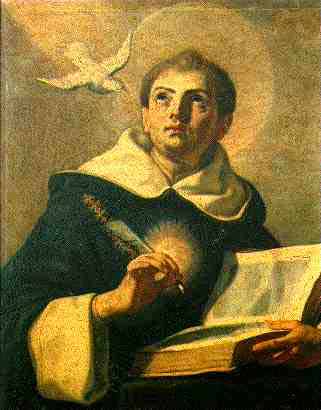 Thomas Aquinas Thomas Aquinas | 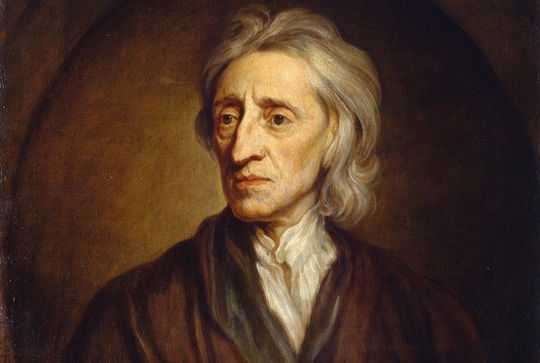 John Locke John Locke |
Two of the most important contemporary thinkers on this subject are Larken Rose and Mark Passio who both have excellent short and long videos on the internet which you should certainly look for and watch if you wish to get into this subject further.
 Larken Rose Larken Rose | 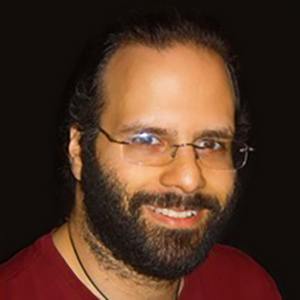 Mark Passio Mark Passio |
Natural Law is really a hard-wired morality. The human ego has a hard time with absolutes. This is anathema to moral relativists - those to whom morality is subjective (which most people are). Moral relativism is a key attribute of satanism: something they are trying to propagate to the rest of society.
Natural Law works at the individual level and at the level of the collective (society). This is one of the fundamental principles of Natural Law: the micro and the macro are a reflection of each other. The Universe operates as a hologram - each small part will contain the essence of the whole. 'Know thyself and know the Universe'. So you can learn about the universe by looking inwardly.
This means that we will receive effects of our own personal actions - but so will we at a macro level, too. Society as a whole will (and is) receiving the effects of its living outside the boundaries of the universe's in-built morality through generations past. This is the Natural Law principle of Correspondence.
Human Brain Condition
It is only possible to live in alignment with the universe's laws when we employ a balance of left and right brain function. The left brain has to do with linear thinking, logic, systems and detail but it is very controlling. The right brain has to do with creativity, innovation, pattern-recognition and seeing the 'big picture'; but too heavily weighted in this direction can lead to naivety.
For humans to flourish, the right-brain is important because this is the side of the neocortex that allows us to imagine possibility. This is the part of the brain that allows us to conceive our future positive projects and dreams (creativity). This is where the blue-sky thinking happens! BUT, we also need our feet on the ground in order to balance those dreams with the left-brain's practicalities and pragmatism. Too much dreaming leads to an 'airy-fairy' condition in which we always dream of possibilities but it never manifests. Action will only happen if we are balanced.
The conception of ideas through the imagination is another key principle of Natural Law: Mentalism - everything that exists in reality was first conceived in the mind. 'In the beginning was the word, and the word was with God and the word was God.' John 1:1
The things we care enough about to put our will behind will manifest. 'Care', in that context is the containing principle of Natural Law: the Generative Principle. What do you pay attention to and spend your time on? Trivialities? Or something more important?
If we live too much in the left-brain, we become controlling (often of others) and, more importantly, we shut out the imagination and creativity of the right-brain. We also restrict the right-brain's ability to see the big picture (holistic thinking). Living in the left-brain causes us to become limited in our spectrum of possibility and fearful. Living in fear will help to manifest chaos. Therefore the very thing that people fear (when living in the left-brain) actually comes about: it is self-fulfilling.
People who fear what might happen if we reduce the power of government, for example, (or even lose government completely) will actually bring in the very condition of chaos that they fear by manifesting an overbearing government authority. Natural Law delivers back to us at a collective level, the very chaos we were frightened of bringing about. So by being over-careful and over-controlling, we bring in that chaos, regardless.
Natural Law is really truth, and that truth has to be discovered. Natural Law does not care whether you believe in it or not, it will exist regardless and the effects of your causes will go on being delivered back to you. Natural Law cares not for your belief in it, or your knowledge of it.
Truth-Discovery
It is up to us to discover this truth and that requires brain balance (as already mentioned) and a deep introspective and self-examining process. On a simpler level, it requires us to focus our perceptions so that they are in alignment with truth. Our perceptions (which is not truth) is always affected by what we want to be true.
Success in this truth-discovery endeavour may also require us to to be aware of an ancient 'truth-discovery process' called the Trivium which is deeply hidden or occulted. Discovering these truths is really about discovering the absolute nature of rights and wrongs and the true essence of property. Understanding the distinction between a right and a wrong (and engaging in right or wrong action) is about discovering the boundaries of Natural Law. This can become known through the gaining of knowledge (not believed-in).
A straight-forward understanding of these rights and wrongs can be found in the Bible's Ten Commandments, which are really all about taking the property of others.
Most people believe they can recognise the difference between right and wrong action and most examples are easy to distinguish through our conscience. Doing this as a juror in a Common Law jury brings about Common Law decisions. Understanding Natural Law helps to guide us on the more difficult understanding of, for example, whether a special group (called government) can have greater rights than individuals, whether rights can be delegated to others or the condoning of the taking of other people's property by believing in authority. These 'problems' are less obvious to many people in society due to extremely effective mind-control techniques and propaganda over very long periods of time, but understanding Natural Law gives us clarity on these moral absolutes. Rights and 'right' behaviour, is truth. Anything that isn't a right (according to Natural Law) is 'wrong' behaviour and is simply false.
It is important to understand, however, that because the understanding of Natural Law is not prevalent in society, we should be careful not to assume that 'the people' through their conscience will always make the right decisions as jurors (it is certainly better than decisions made by government officers however!) For this reason, Common Law (as made by jurors - and dealt with in the next section) is not really the same thing as Natural Law. Common Law is really meant to be a manifestation of Natural Law through conscience but it is not always automatically accurate as it depends on the condition of society's consciousness (in the aggregate). If you have a jury whose members all believe in the illegitimate concept of government authority, then the possibility of that jury finding the accused guilty when he is really innocent of simply transgressing a government statute with no victim, always remains a possibility. (Clearly no victimless 'crime' should be considered a crime at all in any court, especially a court of record).
Bringing our perceptions into alignment with the truth that lies within Natural Law will bring better conditions into our lives on an individual level and within the aggregate simultaneously. But doing so is usually a difficult and uncomfortable self-reflective and introspective process in which most, certainly currently, are not willing to engage. Fundamentally, this is about being honest with oneself.
A mature understanding of the conspiratorial reality of our society and that those perpetrating the deception, fraud and horrors behind the scenes are essentially others like you and I, shows an understanding of Natural Law and displays a greater level of consciousness. A willingness to entertain notions such as a moratorium on those who are willing to 'come across' to us from the groups that engage in secretive dark behaviour, shows a greater maturity. At a deeper level, this may require an understanding that we ourselves may well have been a part of what contributed to those conditions either in past lives or through not resisting these dark forces at a time when it may well have been easier to do so. This is sometimes a painful and emotional process that will involve extremely deep self-reflection. Our lack of action when the defense of truth was necessary is, essentially, acting outside the boundaries of Natural Law. It is quite likely that without far greater numbers in society going through this and gaining this knowledge, we will not see the beneficial changes in our society that will ultimately lead to the desired transformation.
If you are interested, more detail on the subject of Natural Law can be found here: https://www.newchartistmovement.org.uk/learning-resources/an-introduction-to-natural-law-william-keyte
WJK - May 2018
The People and the Formation of their Government
People exist before government. It is understood and recognised all through our history of law in the UK (and in the US) that people form their government to serve them. People are a divine spark and are connected to 'God'/the creator. People are living, thinking, creative beings.
Government, however, is a fiction - it doesn't exist in nature unless it is created by people. Even once it does exist, it is only a collective and an abstract in the mind. It therefore cannot be given greater rights, privileges or authorities than flesh-and-blood, living and thinking beings. If you believe that, you are attributing greater rights and privileges to a collective abstract concept than a real living thing that can feel and create.
All through history, (possibly as a result of a disconnection or lack of trust in the divine system or through usurpers' desire to control), Man has felt it necessary to form a government effectively to fill what they perceive as a 'missing' system of law and order. The people of a society create a government to perform functions and to oversee that regulatory system. It is considered purely a matter of practicality. However, it is important to remember that 'law and order' is only a manifestation of society's collective understanding of Natural Law - the understanding of boundaries that determine perceived acceptable behaviour in our relationships between each other. That innate understanding remains within all of us (see the previous section on Natural Law). It is the people that make up a society themselves that envision the principles of fairness and justice within their own society.
It is for this reason that a legitimately constituted society (A democracy) is only in operation if its Government remains subservient to the people. The people remain in authority. (More on how this is done later, as this is often a surprise to many; it is not achieved through a system of voting in elections). If the government does not remain in service to the people that created it, then that society becomes a despotic and tyrannical society: the fiction has gained authority over its creator. The people who control the government machinery have become the usurpers.
How a Legitimately-formed Democratic Society is Governed
In what way is the people's government subservient? A Society governs through its laws. Therefore it is pertinent to ask the ultimate question: who creates the man-made law; society's laws? It matters who creates the law because the law of the country is supposed to reflect the people's sense and understanding of fairness and justice (obtained through universal or natural law). This is our collective human conscience. It is not for people in 'authority' or in special positions to judge the justice of the country's laws.
Equity
Man-made law that is created through the people (not those in the office of government) is called Common Law. This results when randomly-picked members of the community serve as jurors on a jury and make decisions through delivering a verdict on the 'accused'. Jurys' decisions over time forms the Common Law. (More on this later). This is a manifestation of Natural Law through human understanding of fairness and justice.
Perhaps the most important principle in Natural Law is that all are equal and nobody is above 'the Law' (natural Law). Therefore, through people's inherent ability to judge fairness and justice, it is the job of all people, equally, to decide on the fairness of the country's laws under which we all agree to place ourselves. This is the creation of Common Law - a reflection of the divine system of Natural Law to which we, as humans, are connected.
In order for any government not to become tyrannical to its people, a properly constituted society limits its own government through a democratic framework. This applies constraints on the powers of its own government, thus protecting its people from tyranny and despotism - from within. The definition of that framework for the country that determines the various government entities and their position in relation to each other is called a constitution. Not all constitutions automatically favour or support the freedoms of the people by limiting the powers of government. Some countries will adopt a constitution that might do the exact opposite. A constitution that fundamentally limits the authorities of the government and keeps the authority of the people above its government is a democratic constitution. But, importantly, and this is dealt with later, not because that society holds elections and allows the people to vote. That is not the definition of Democracy, contrary to what most people believe. The mechanisms through which the people hold their government to account and remain sovereign at all times, are dealt with later.
Specifically within the United Kingdom, the most notable and important event in which those democratic principles were laid down as our constitution was the signing of the Great Charter (Magna Carta) of 1215. This was a compact (contract) between the head of state at the time (King John) and the people. Importantly, however, this bound not only John himself but all of his successors to those terms.
We are not talking here about later 'versions' of Magna Carta (1225, 1297) that were simply legislative 'rewrites' by government as an attempt to 'replace' the original with something more palatable to those 'in power'! These later versions were examples of illegal government-created law (regulation). But the 1215 Magna Carta itself contained the strictures of Common Law - and the power to go on creating it. This is what forms the constitution and it is highly disingenuous for people within the pay of government and specifically within the modern judiciary and legal profession to claim that the UK has no written constitution; it does!
The 1215 original was not legislative law created by government or the head of state. As Kenn d'Oudney says in his book Democracy Defined: The Manifesto on p. 68:
'The 1215 Great Charter is the people's perennial Compact (Contract) with their chosen incumbent heads of State: it is NOT a statute.'
It is the people that choose the nature of the framework in which its own government is bound. For this reason, the government is fundamentally limited in its powers. The government cannot then use its own powers to alter that framework in which it, itself, is confined. The framework of which the government is a part, is greater that the government itself.
As d'Oudney also says on page 68 in Democracy Defined: The Manifesto
'A government, parliament / congress or legislature cannot, by legislative assertions, write itself into constitutional power.'
Government Structure
Our government consists of officers that must take oaths, precisely because they are public servants. They are not the ultimate authority.
These oaths establish and define these government officers' professional loyalties and limitations in office. They take oaths to the head-of-state, not through some kind of deference to the royal family (in the case of the UK) but more as a promise to uphold the Rule of Law. Why? Because the head of state represents that Rule of Law, the fairness and justice of the system that keeps the people's sovereignty in place. Equity.
The head of state (in a truly legitimate democratic society) promises to uphold the rule of law for the people whether a president in a Republic or a King/Queen in a Monarchy.
A Republic is no more prone to upholding this system of the Rule of Law than a monarchy - a common misconception especially in the United States. As long as the head of state in either situation remains a symbolic representation of the Rule of Law - the upholding of the people's sovereignty through Common Law principles, then a republic or a monarchy can be equally truly democratic. Conversely, a President in a Republic can be just as tyrannical as a King or Queen in a system of Monarchy. That would make that state completely non-democratic regardless of whether elections are held.
This is absolutely critical that people understand this. Democracy has nothing to do with voting in elections: that is called suffrage. Democracy is, instead, all about the people being directly in authority over their government and its legislation (rules of society) through the magic mechanism of full Trial by Jury and the ability to annul 'bad' or unjust government regulation. This defining principle of Democracy is what allows the people to remain sovereign at all times - not merely every four years at elections. But democracy is also about the head of state responsibly sticking to their promise to keep all of that in place and not to ratify government legislation if it clearly falls foul of existing, recognised common law or attempts to tamper with the constitutional structure itself.
Government-Created Law - Legislation
The head of state's obligation to uphold the Rule of Law was already established through the Common Law principles that are built into the 1215 Magna Carta. Later on, a statute of parliament was written that merely supported this relationship in the UK through the Coronation Oath Act; but this was only legislative law through government and could, in theory be repealed. But the Articles of the Great Charter could never be repealed by government because they are truly constitutional and are greater than the government itself.
So we know that government creates law. It is entitled to do so - but always within the limits of the principles set down within the constitution. Within the entire system of law, there are layers or 'jurisdictions'. Law that is created by government is only one 'layer' or jurisdiction.
Due to the constitutional framework of a Democracy, in which the people are in authority, through the head-of-state's promise/contract/compact, the government remains subservient to the people. Therefore the law that is created by government (called legislation) is not the highest jurisdiction and not the ultimate authority - although they would like you to think it is!
For this reason, government (specifically parliament) is not sovereign, contrary to what is often said in the media and in popular conversation. Its legislative code is merely society's rules or regulation, as confirmed and ratified by the people - but only if it is.
Furthermore, legislative law created by a government legislature through acts of parliament (in the UK) or Congress (in the US) can be repealed by any subsequent government. That further clarifies its limitations in the jurisdictional 'pecking order' of law.
So it is important to be aware that many 'laws' that we think are constitutional are, in fact not, but merely legislative. It is often a shock to people, when it is pointed out, for example, that the English Bill of Rights (1689) is not a constitutional document. It cannot possibly be, as it was created through the parliamentary legislatorial process. It can therefore be repealed by any subsequent government.
Government, however, cannot repeal the greater articles of Common Law that appear in the 1215 Great Charter. As d'Oudney says on page 69 of Democracy Defined: The Manifesto
Concerning specifically the Articles of Common Law in Magna Carta, this timeless common law per se has never been a government statute. Whereas government may enact and repeal statutes, it does not choose the People's Constitution. It cannot go back in time to change the strictures of the 1215 Great Charter or the universally-applicable natural, timeless secular Common Law. Statutory parliamentary attempts to intervene in 1215 Magna Carta are ultra vires; it is beyond the legal power or scope of parliament or congress to change the genuine Common Law.
WJK - January '18
Trial by Jury
We said at the beginning that a society governs through its laws. The ultimate control is through punishment. If the people are meant to be in authority through the proper democratic constitution, then what mechanisms do they have to make or remove their country's laws that they, themselves agree to abide by? Are the people automatically bound to be subject to any laws that its government creates? Clearly not - as we've already established. So what is this mechanism that allows the people to create this higher jurisdiction of law?
The ultimate mechanism through which the people can write their own laws is through the Common Law Trial by Jury system. Because, in a proper, full, un-abridged Trial by Jury system (that has now been unlawfully removed from the people), the jury have the right and duty to annul bad government law. This is the people being sovereign. See p.67 of Democracy Defined: The Manefesto.
So Common Law is actually the consolidation of the judgements of juries (the people), not, as you will generally be told by people in the legal profession, judgements by judges! Importantly, the people's law (Common Law), is based on principle not outcome. You cannot legislate for motive. (p. 37 of Democracy Defined: The Manefesto - guilt depends on intent or motive). Rules and regulation (legislation) only judges the outcome; but the higher Common Law judges motive and principle - according to human conscience. When ordinary people judge their peers, they do so through their conscience: it is therefore a human judgement by people of the community on the fairness of enforcing potential punishment upon the accused. This is, essentially, the manifestation of Natural Law through human consciousness.
Furthermore, it is people of the community judging people of the community. If the accused is found guilty, that guilty verdict will have been delivered by fellow community members - his peers or social equals. That further establishes the Natural Law principle that we are all equal before the [natural] law.
Further still, the jury (in a full trial by jury system) has the right and duty to judge on the nature of the punishment. The government will simply carry out or 'execute' the punishment according to the will of the people. That is the role of the executive branch of government.
Trial by Judge is not an impartial tribunal. The judge is an employee of the state and is a member of the judiciary. There is clearly a conflict of interest for the judge, when, on the one hand being required to decide on the justice of a case whilst, simultaneously, running the risk of defying the wishes of his pay-master, the government, by refusing to maintain and enforce its laws.
The Judge is wrongly named the 'judge'. Under proper constitutional common law Trial by Jury, the judge is merely called the 'Convener'. It is the members of the Jury (the Jurors) that are the Judges - as they are judging on all aspects in a court case - without interference.
Specifically, and most importantly, the members of the jury (through full Trial by Jury) have the power to annul bad government law (legislation) by applying the not-guilty verdict, if, according to their conscience they decide that it would be unjust for the accused to receive punishment.
Briefly, without going into too much detail on the proper democratic trial by jury, it is this full un-abridged Trial by Jury system (that has now been illegally removed from us) through which the people have the control over the laws and the justice system within their country. This is what causes the people to have sovereignty in a truly democratic society.
Democracy has nothing to do with voting in elections. It is not through the election system that the ordinary people have influence over the functioning of their state. It is specifically through the full system of Trial by Jury (now un-lawfully taken from the people) that the people have control over the fairness and justice of laws of their country. That is the key characteristic of a democratic state. The people retaining their sovereignty, at all times - not just at elections, by having direct control over its laws when functioning as jurors. Again, the existence of electoral voting in a country does not define that country as democratic - contrary to what most people (even in government) believe.
In a proper system of Trial by Jury, a guilty verdict must be passed unanimously otherwise the accused is automatically considered not-guilty. The defendant is only guilty if each and every member of the jury considers the accused guilty. Under Common Law, it is of greater importance that a good man is not punished wrongly.
Lastly, the jurors make this decision privately and without having to provide explanation. Why? Because that decision is reached through their own conscience and sense of fairness.
WJK - May 2018
More sections to follow shortly...
